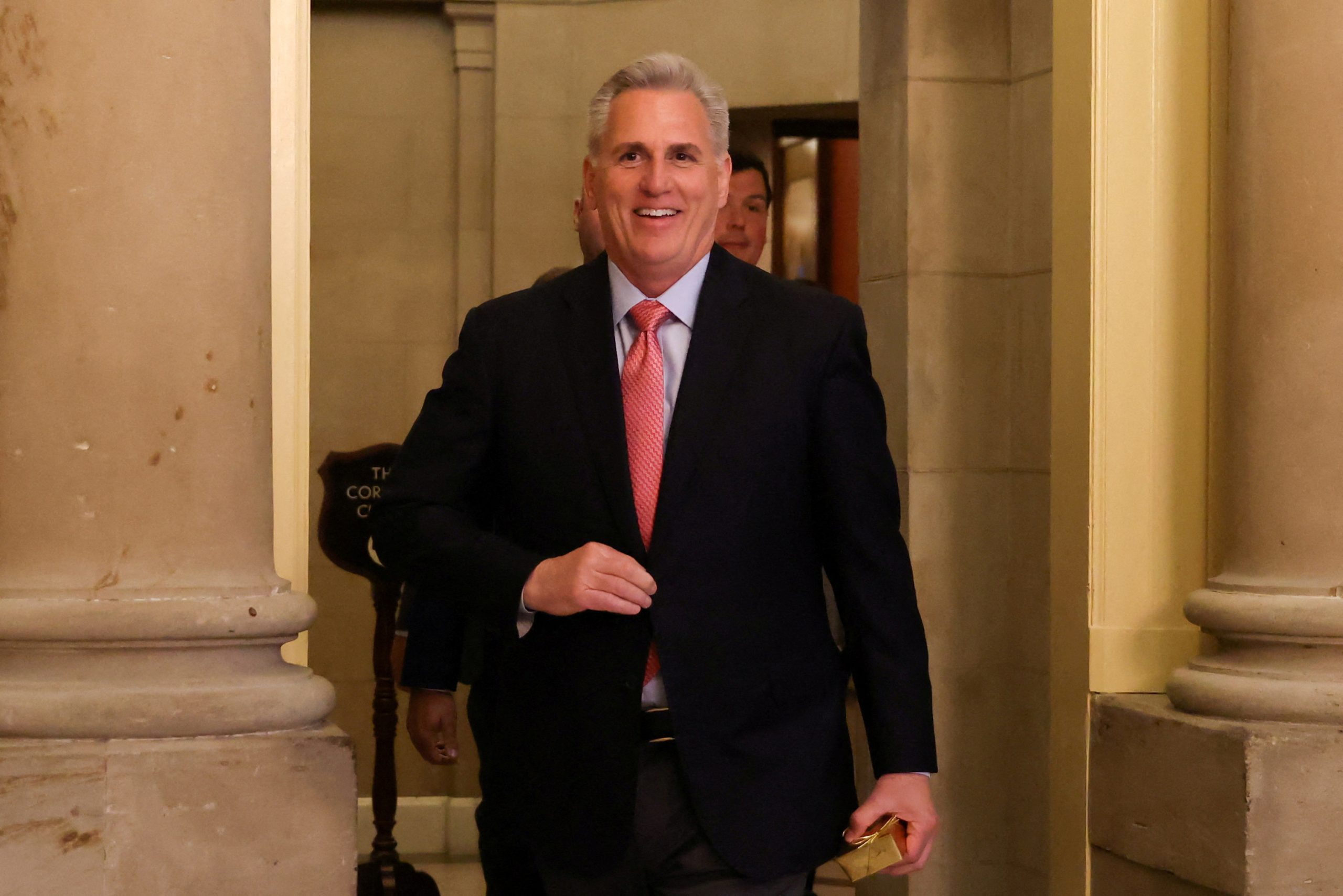
Matt Bush, FISM News
[elfsight_social_share_buttons id=”1″]
In a move that will most likely die in the Senate and would surely be vetoed by President Joe Biden if not, House Republicans passed a bill that would raise the debt ceiling by either $1.5 trillion or for one year, whichever comes first.
Entitled the “Limit, Save, Grow Act of 2023,” the bill would raise the debt ceiling but would also cut billions of dollars in federal spending, effectively rolling back some of the Biden administration’s agenda and saving the nation around $4.5 trillion over 10 years.
The bill passed by a slim 217-215 margin with four Republicans joining all House Democrats in voting against it. The four Republicans who voted against the measure were Reps. Matt Gaetz (R-Fla.), Andy Biggs (R-Ariz.), Tim Burchett (R-Tenn.), and Ken Buck (R-Colo.).
Ultimately, the bill’s passing marked a huge win early on in Speaker of the House Kevin McCarthy’s tenure and puts pressure on the White House to respond.
“We have lifted the debt ceiling, so nobody could worry about whether the debt ceiling is going to get lifted, we did it. The Democrats have not. The president wants to make sure the debt ceiling is going to be lifted? Sign this bill,” McCarthy said in a press conference after the vote.
House GOP Conference Chair Elise Stefanik echoed McCarthy’s sentiments telling Fox News, “We are the only chamber that has done our job. Senate Majority Leader Chuck Schumer needs to get to the negotiating table, as does President Joe Biden.”
President Biden has remained insistent that a negotiation to raise the debt limit is not on the table and never has been.
“Happy to meet with McCarthy,” Biden said at a press conference Wednesday. “But not on whether or not the debt limit gets extended. That’s not negotiable.”
While McCarthy and GOP House leadership believe the bill forces Biden’s hand, some inside the White House insist that it did more to show McCarthy’s weakness than his strength.
“I don’t think this gets you any closer to a resolution. If anything, it reinforces how weak McCarthy is,” said one adviser to the White House according to Politico.
“No clean debt ceiling is going to pass the House,” McCarthy said, issuing an ultimatum of his own.
Both sides have drawn a line in the sand, and for either to cross that line would be a clear show of weakness.
WHAT IS IN THE BILL?
The bill is split into five divisions as follows:
- Division A: Limit Federal Spending
- Division B: Save Taxpayer Dollars
- Division C: Grow the Economy
- Division D: The Lower Energy Costs Act
- Division E: Increase in Debt Limit
Some of the specific spending cuts, according to the New York Times, included in the bill are capping federal spending to 2022 levels, rolling back many of the Biden climate control measures, cutting back IRS funding, imposing stricter work requirements for Medicaid and food stamp recipients, rescinding unused COVID-19 relief funds, blocking student loan forgiveness, and ultimately increasing the debt limit through March 31, 2024.
FOUR REPS STAND FOR FISCAL RESPONSIBILITY
The four Republicans who voted against the plan had their own reasons for not supporting it, most of which had to do with the mounting federal debt being accumulated by the country, a debt that grows regardless of which party controls the White House.
“As our nation is careening into a $32 trillion debt, Congress shouldn’t be making final changes at 2 a.m. — the morning of the vote — to legislation raising the debt limit $1.5 trillion,” Gaetz said in a statement. “Gaslighting nearly $50 trillion in debt to America is something my conscious cannot abide by at this time.”
The other three congressmen echoed similar sentiments, including Biggs who challenged McCarthy for the Speakership.
It is now up to Senate leadership and President Biden to agree to talks and to work together to ensure that the country does not default on its responsibilities.
